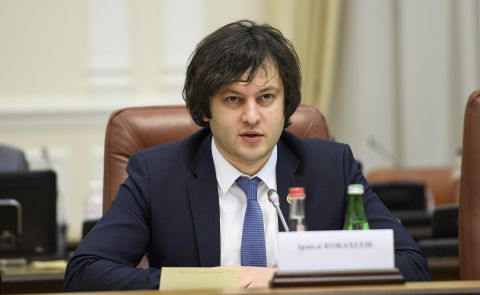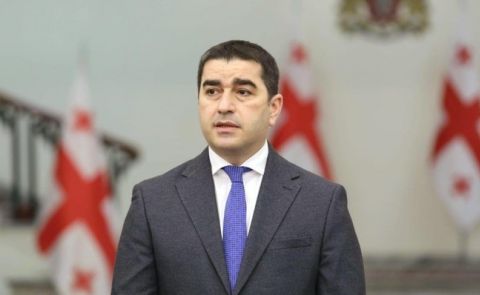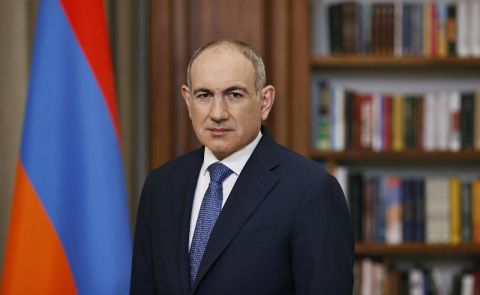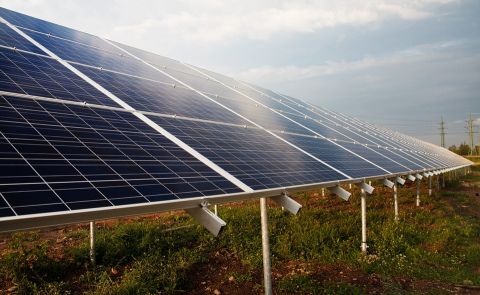
Recent economic developments regarding Georgia

National Bank of Georgia raised refinancing rate due to sanctions against Russia
The National Bank of Georgia raised the refinancing rate from 10.5% to 11% due to the impact of anti-Russian sanctions on the economy. This was reported by the press service of the financial regulator.
It was reported National Bank is struggling with rising inflation. It was expected that inflation would fall sharply in March after the figure of 13.7% in February, but the situation in the world has changed.
“The imposed sanctions against Russia in connection with military operations and supply disruptions led to a significant increase in prices for a number of categories of goods on world markets. First of all, against the backdrop of rising oil prices, there is a sharp increase in fuel prices, which is expected to have a significant impact on inflation,” the report said.
The National Bank noted that the inflation rate in Georgia will still decrease, but not in the way it was planned. Also, experts do not expect that by the end of the year the inflation rate in the country will drop to 3%, included in the state budget.
Georgia's external debt increased by $775.7 million at the end of 2021
Georgia's total external debt reached $21.8 billion, which is 116.8% of 2021 GDP, the National Bank of Georgia reports.
“In the fourth quarter of 2021, the total external debt of Georgia increased by $775.7 million. Of these, debt due to operational changes increased by $ 901.3 million, and due to other changes - by $74.5 million, and in due to changes in the exchange rate and prices, the debt decreased by $167.7 and $32.3 million, respectively,” the report said.
In addition, according to the National Bank, Georgia's external public debt amounted to $10.7 billion, which is 57.0% of GDP.
“Of the $10.7 billion, public sector debt is $8 billion, National Bank liabilities are $954.1 million, and government bonds and loans are $503 million and $1.2 billion, respectively. The external debt of the banking sector amounted to $4.6 billion, the external debt of other sectors - $4.9 billion and inter-corporate debt - $3.5 billion. 90.7% of the total external debt is denominated in foreign currency,” the National Bank of Georgia said.
Georgia's net external debt was $13.3 billion, which is 71% of 2021 GDP. Of this amount, the public sector's net external debt is $6.3 billion, which is 33.9% of GDP.
“In the fourth quarter of 2021, the external debt of the National Bank of Georgia decreased by $11.5 million. Of these, the debt due to operational changes decreased by $5.1 million. Due to the change in the exchange rate, the external liabilities of the National Bank decreased by $6.4 million. At the end of the fourth quarter of 2021, the total external liabilities of the National Bank amounted to $954.1 million. Of these, $483.8 million is a special right of a distributed loan that has no maturity and in practice there will be no obligation to repay it as long as Georgia is a member of the International Monetary Fund,” the National Bank said.
U.S. to provide USD 126 million in assistance to Georgia
The US President's Administration's budget plan for the Department of State and USAID for fiscal year 2023 envisions delivering US$126 million in aid to Georgia through numerous initiatives.
Georgia should get the greatest portion of this figure, US$88 million, under the assistance to Europe, Eurasia, and Central Asia programme, making it the second largest prospective beneficiary in the Europe/Eurasia area behind Ukraine.
Georgia will also receive US$5 million from USAID's Global Health Programs. Georgia will get an additional US$4.4 million in international narcotics and law enforcement financing, according to the budget draft. Furthermore, the International Military Education and Training budget for the country is US$1.75 million, down from US$2.2 million in the 2021 budget. Georgia has asked US$25 million from the Foreign Military Finance Fund, down from US$35 million in 2021. Despite the reduction, Georgia remains the second-largest receiver behind Ukraine (US$165 million). Lithuania, Latvia, and Estonia are each expected to receive US$9.75 million in assistance. Georgia has sought US$1 million and US$1.1 million in non-proliferation, anti-terrorism, demining, and related efforts, respectively, for Conventional Weapons Destruction and Export Control and Related Border Security financing.
Turkish workers lost interest in the Georgian market
The number of trips of Turkish citizens to Georgia for the purpose of employment in January-February 2022 decreased by more than half. This is evidenced by the data of the Turkish Employment Service (İŞKUR).
During this period, the number of Turkish citizens who visited Georgia through İŞKUR decreased by 56.3% compared to January-February last year, amounting to only 14 people. In general, during the reporting period, 2,397 Turkish citizens went abroad through İŞKUR, which is 48.1% more than in January-February 2021. In February 2022, 86,595 Turkish citizens were provided with jobs through İŞKUR. 99.6% of job seekers got jobs in the private sector. During this period, the number of unemployed in Turkey amounted to 3.188 million people, of which 49.8% are women, 50.2% are men.
Turkish Enka withdrew from the Namakhvani hydroelectric megaproject in Georgia
After more than 300 days of protests and blocking construction work by environmental activists, Turkish company Enka Renewables LLC has officially cancelled a contract with the Georgian government to build the Namakhvani hydropower plant, according to the company's 2021 financial report.
The investment agreement between Enka Renewables and the government of Georgia, represented in the contract by Georgian Energy Development Fund JSC, regarding the development, construction, ownership, and operation of the Namakhvani Hydropower Plant (Namakhvani JSC), has been officially terminated. The report explains that the gap was due to government default and force majeure. The report also indicates that the company wrote off technical equipment purchased for the construction of a hydroelectric power station in Georgia, as well as real estate and installations in the amount of $40.4 million.
See Also


Kobakhidze Meets US Senator Daines to Discuss Bilateral Relations

Georgian Speaker Condemns Embassy Travel Warnings as Economic Attack

Political Crisis Deepens Between Armenian Government and Apostolic Church After Pashinyan’s Remarks

Ramzan Kadyrov Awards Title to Ingush Businessman

